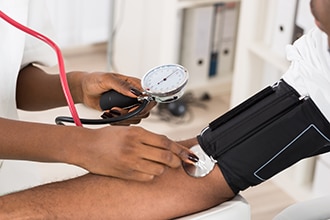Diagnosis of Food Poisoning
How do doctors diagnose food poisoning?
Doctors often diagnose food poisoning based on your symptoms. If your symptoms are mild and last only a short time, you typically won’t need tests.
In some cases, a medical history, a physical exam, stool tests, and blood tests can help diagnose food poisoning. Your doctor may perform additional tests to check for complications or to rule out other health problems. Your doctor may need to contact the health department to report your illness.
Medical history
Your doctor will ask you about your symptoms, for example
- what symptoms you have
- how long you have had symptoms
- how often you have had symptoms
Your doctor will also ask about
- what you recently ate and drank
- whether you know other people who have recently had similar symptoms
- recent travel to developing countries
- current and past medical conditions
- prescription and over-the-counter medicines you take
Physical exam
During a physical exam, your doctor may
- check your blood pressure and pulse for signs of dehydration
- examine your body for signs of fever or dehydration
- use a stethoscope to listen to sounds in your abdomen
- tap on your abdomen to check for tenderness or pain

Sometimes, doctors perform a digital rectal exam to check for blood in your stool. Blood in your stool may be a sign of an infection with bacteria or parasites.
Stool tests
A health care professional will give you a container for catching and storing the stool. You will receive instructions on where to send or take the container for analysis. Stool tests can show the presence of viruses, bacteria, or parasites.
Blood tests
A health care professional may take a blood sample from you and send the sample to a lab. Blood tests can show signs of certain infections or signs of complications such as dehydration.
This content is provided as a service of the National Institute of Diabetes and Digestive and Kidney Diseases
(NIDDK), part of the National Institutes of Health. NIDDK translates and disseminates research findings to increase knowledge and understanding about health and disease among patients, health professionals, and the public. Content produced by NIDDK is carefully reviewed by NIDDK scientists and other experts.

